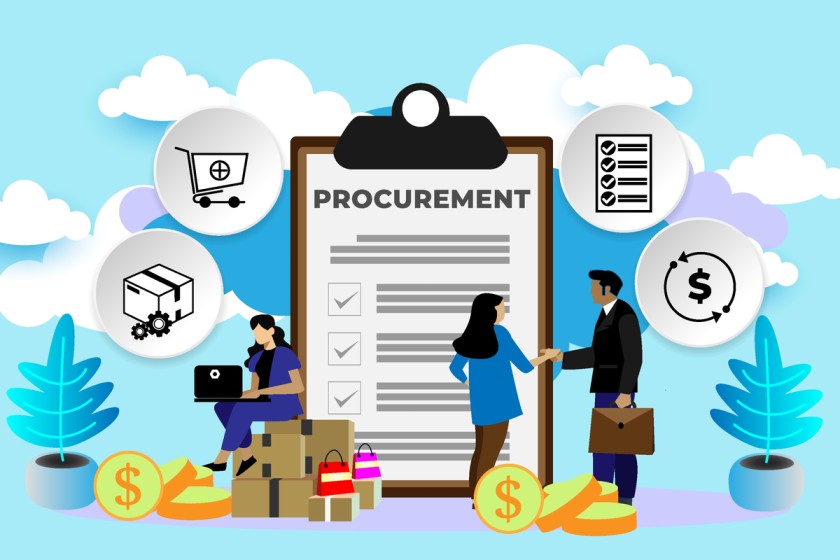5 Must-Have Skills For Supplier Relationship Management



Every organisation that deals with vendors, suppliers, or more such layers needs proper handling of systems. With the association of so many people, a large network is created, which can sometimes be hard to manage. Vendor management and supplier relationship management come in handy at such stages. These two aspects are an essential part of any organisation and can help scale the business and determine its growth.
With industries going global and vendors having access to a larger market, it becomes crucial for an organisation to maintain a healthy relationship with its suppliers. The strategic suppliers who supply crucial elements to an organisation require effective communication and easy workflow.
What is Supplier Relationship Management?
Supplier Relationship Management or SRM is a significant part of a procurement cycle that deals with a variety of things from a broad perspective. Supplier relationship management is the process of maintaining the vendors who are associated with an organisation for the supply of goods or other services. These vendors are an important part of any organisation because they make sure that the supplies are provided when needed, which helps the company to scale and function.
Supplier relationship management has gained prominence due to its importance in the functioning of organisations. Maintaining and understanding the role that each supplier plays and what value they bring is vital.
Supplier relationship management is the B2B version of customer relationship management or CRM. Both of these deal with providing a smooth process flow between two parties. However, supplier relationship management is different from vendor and procurement management because it deals with improving the process entirely.
The industry is changing rapidly, thus changing the demands of the market and personnel associated with it. Here are a few such changes:
- The increasing demands of consumers for the best products
- Everything made easily accessible for consumers by numerous sellers
- The need for strategic planning for changes occurring due to digitisation
- Need for a transparent and reliable automated management system
All these and many other factors push an organisation to improve its current management parameters on a large scale.
There are many kinds of SRM software that can be used to manage various layers in the process, ensuring a nice flow. These can help the organisations in the following categories: communication, invoices, history, analytics, sourcing, procurement, and more. Apart from this, a lot of managerial work can be facilitated through such software, including supplier data and performance, contract, and catalogue, among others.
An effective SRM strategy is one where there is a focus on maintaining personal relationships. Organisations can go above and beyond by including their suppliers in their scalability plans and expansions. This automatically creates a great bond, which is the very foundation of supplier relationship management.
The supplier relationship management process

The process of supplier relationship management largely depends on what kind of organisation it is and how it operates and deals with the vendors. However, for a basic understanding, we can classify the process in three major steps:
List the suppliers
First, SRM teams should list down and segregate the suppliers. This can be done in many ways, but the best method is to do it by relevance and importance. Identify one supplier that is the key part of the production and operations. This gives a clear idea of who deserves to be prioritised in the creation of a supplier relationship strategy.
Make a realistic strategy
It is important for every strategy to be realistic so that the organisation can drive the maximum benefit out of it. The strategy should have remedies to all the pain points that the suppliers face, with effective points to tackle them in the most meaningful way. Every strategy should be a two-way street that provides maximum leverage to both parties.
Executing the strategy
Making a strategy is just half the battle won because executing it is the task at hand. There should be a perfect delegation of tasks internally so that every aspect of the strategy is taken care of.
The following points should be kept in mind while making a strategy for effective supplier relationship management:
- Ensuring timely payments should be the first priority of the strategy.
- The process should be technologically sound and work in favour of both parties.
- The strategy should help in the betterment of relationships both ways.
- The strategy should include a process of documentation that is detailed yet simple for the suppliers to understand.
- The strategy should clearly assess the risks and limitations that can come up in the execution stage.
A 360-degree approach ensures that all the needs are met and that everything works favourably for the buyer and the supplier. Supply relationship management always has a scope for improvement. Thus, the overall company strategy should keep these factors in mind.
5 must-have skills for supplier relationship management

A solid skill set is required for effective supplier relationship management because of the increasing demands and competition. There is no doubt that there should be an excellent command over:
- Project management
- Technical understanding
- Problem-solving
- Legal requirements
These are the crux of any team in an organisation. However, in supplier relationship management, these are the top skills to have.
Apart from this, there is a large set of soft skills that one needs to have, such as time management, leadership skills, facilitation skills, and understanding customers.
Let’s now look at the five must-have skills for supplier relationship management that apply to all organisations and domains.
Communication is key
For a successful supplier relationship management strategy, communication skills are crucial. There needs to be a clear and accessible channel of communication between the supplier and the company’s supplier relationship manager. If both sides communicate clearly and thoroughly, it goes a long way in avoiding conflicts and errors.
Be respectful
It is highly essential that suppliers are treated with respect at all times, especially when someone who is not part of the immediate team uses their services. The attitude that a supplier will have towards a company will be determined based on how they are treated by its representatives. Being harsh and disrespectful will hurt the SRM team’s chances of a mutually benefiting relationship and collaboration.
Be crystal clear
For a supplier relationship to prosper, it is mandatory to be open about the terms of the service as much as possible. There should be no room for hidden agendas or ulterior motives, as it reflects a poor work ethic. Being open and clear about the company’s requirements and what benefits the supplier can get creates a smooth workflow.
Work as per the established terms
The contracts and paperwork should be the priority in the supplier relationship. Representing the terms of service clearly and ensuring proper documentation of the same is an important skill in supplier relationship management. No matter how nice the interpersonal relationship is, if the official or legal documents do not depict the terms agreed upon, it may hamper the supplier relationship tremendously. It is important to deliver what is said and agreed on.
Justness is paramount
Supplier relationship managers must be just and fair to the vendors at all times, irrespective of how the other departments work. If the supplier sees unfair or unjust practices by the team, the whole organisation may come under scrutiny. Thus, this should be one of the major skills to practice.
Limitations and challenges
Every part of an organisation has their own set of limitations and challenges. In supplier relationship management, the challenges are more real-time and thus need quick resolutions.
Here are some of the key challenges that can come up:
- Taking care of any risk or challenges during the changing times
- Not able to observe the supplier’s working process
- The confusion caused if there is no proper alignment between the teams
- A lapse in diversifying the supplier profiles
As a result of rapid changes in how things work, keeping a tab on all areas of work is a challenge. As suppliers are not immediate employees and work elsewhere, there is a lack of transparency. To tackle these limitations, which can vary from industry to industry, companies need to formulate a proper strategy.
Fashinza helps in sourcing the right manufacturer, vendor, or supplier for all kinds of needs while maintaining the required transparency. We work with a large set of skilled providers who can help brands scale profitably and enjoy sustainable growth.
Get in touch now with our team for extended support!



















